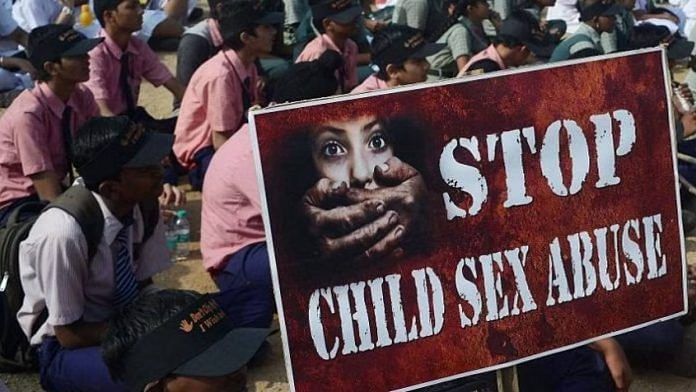New Delhi: The National Commission for Protection of Child Rights (NCPCR) has asked the Supreme Court to make social media platforms liable for reporting accounts that upload videos of child sexual abuse, under the Protection of Children from Sexual Offences Act (POCSO Act).
In an application filed before the Supreme Court, the NCPCR has asked the apex court to “pass appropriate directions to social media platforms to (report about) account information and provide particulars or details regarding persons uploading/procuring/storing child sexual abuse material”.
This is in terms of the “positive mandate” cast on everybody, including social media platforms, under Section 19 of the POCSO Act, the NCPCR has said.
The POCSO Act is a gender-neutral criminal legislation to protect children from being exploited sexually. It treats possession, storage as well as circulation of child pornography videos as a criminal offence.
Section 19 of the Act casts a positive legal mandate on any person or body to report an offence committed under the Act, of which they have knowledge, to either the special juvenile police unit or the local police. In case of non-adherence to Section 19, Section 21 of the POCSO Act prescribes punishment for failure to report or record such an offence.
The NCPCR’s application was filed in a petition jointly put up by five NGOs against the Madras High Court order of January this year that quashed a case lodged against a 28-year-old man for downloading pornographic content involving children on his mobile phone. The high court had ruled that mere downloading and watching of child pornography was not an offence under the POCSO Act and Information Technology Act.
A bench led by Chief Justice D.Y. Chandrachud heard the matter in the Supreme Court Friday and reserved its order on the NCPCR’s petition. During the hearing, it was highlighted that apart from incorrect reading of the POCSO Act, the high court in its verdict had ignored the crucial aspect of a child being the victim of child pornography.
The bench also noted that the NCPCR had mentioned the letters it has written to various state police departments since 2023, asking them to initiate action against online content that clearly violates the POCSO Act.
However, many states have failed to respond to the NCPCR, while some replied saying they had either not taken action or had sent further notices to social media platforms for more information on the child abuse clips flagged by the commission.
To supplement its application, the NCPCR has filed its written submissions settled by senior advocate Swarupama Chaturvedi.
Through its documents, the commission has criticised the state authorities for taking a lenient view in “otherwise serious offences” committed against minor children of both genders.
On intermediaries abdicating their legal obligation under the POCSO Act, the NCPCR stated: “The applicant commission on various occasions and past instances has observed that social media platforms have not only erred but seem to have failed in performing the statutory mandate cast on them under Section 19 of the POCSO Act.”
Underlining the “positive” mandate in Section 19, the NCPCR said the legal obligation in this provision is “mandatory” and not “directory” and requires that a person who has apprehension that an offence under the Act is likely to be committed or has knowledge of the same shall report the same to the police.
From the responses sent by various state police, it appears that social media platforms have not taken any steps to initiate criminal proceedings against either the account holders or any other persons related to creation, uploading, browsing, downloading or otherwise consuming of objectionable content on child pornography, the NCPCR said.
The commission added that mere removal of “sexually-explicit material” involving minors and reporting the same to a US-based NGO — the National Center for Missing & Exploited Children — does not absolve such platforms from their liabilities or statutory duty under Section 19 of the POCSO Act.
Even though these platforms function in the capacity of an intermediary, they are first to be privy to objectionable content under the POCSO Act and, therefore, necessary and timely action is imperative to prevent its further dissemination as well as immediate action against those involved in such activities, said the NCPCR.
(Edited by Nida Fatima Siddiqui)
Also Read: Meta, Google & others commit to stepping up measures against sexual assault videos, child porn



